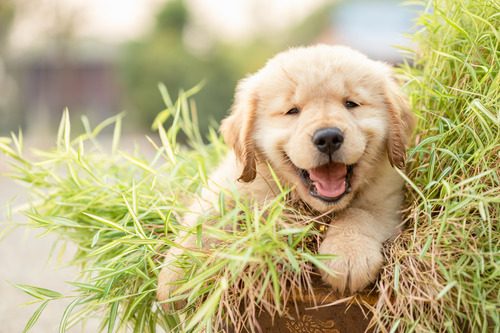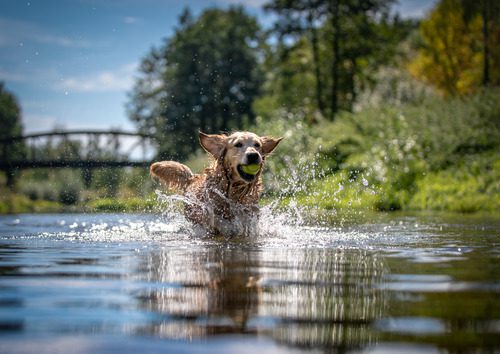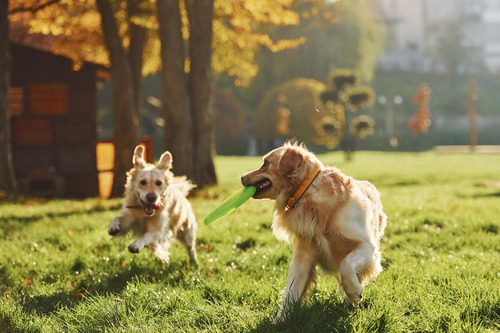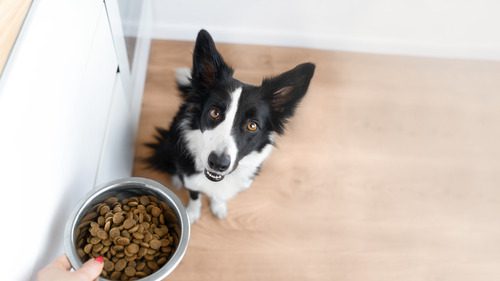Why Is My Dog Eating Leaves?
Dogs have a knack for getting into all sorts of curious habits, and one of the more puzzling behaviors pet owners may notice is their dog munching on leaves. While it might seem odd, there are several reasons why your dog might be indulging in this peculiar activity. If you are concerned about your dog’s health or behavior, call Cornerstone Veterinary Hospital of Clifton Park at (518) 383-6254 to make an appointment.

Is Leaf Eating Normal for Dogs?
Many pet owners report their dogs occasionally nibbling on grass, plants, and leaves. This behavior can be rooted in various causes, ranging from curiosity to nutritional deficiencies. While it’s not typically a cause for immediate concern, you should observe your dog’s overall behavior and health to help ensure that leaf eating is not a symptom of a more significant issue.
Exploring Natural Curiosity
Dogs are naturally curious creatures. From a young age, they explore their surroundings using their senses, including taste. When your dog eats leaves, it may be satisfying its curiosity about the textures and flavors of the natural world. This behavior is particularly common in puppies, who use their mouths to investigate almost everything.
Behavioral Reasons for Leaf Eating
Leaf eating can sometimes be a result of boredom or anxiety. Dogs that do not receive enough mental or physical stimulation may turn to eating leaves as a form of entertainment or stress relief. Ensuring your dog has enough playtime, exercise, and enrichment can help reduce this behavior.
Nutritional Deficiencies
If your dog’s diet lacks certain essential nutrients, they might seek alternative sources to compensate. Leaves can sometimes provide fiber or other minerals that your dog’s body craves.
Understanding Your Dog’s Diet
Ensure your dog’s diet includes high-quality ingredients and is balanced to meet their specific needs. Consulting with your veterinarian at Cornerstone Veterinary Hospital of Clifton Park can provide insights into whether your dog’s diet is adequate or requires adjustments.
Signs of Nutritional Deficiencies
Look out for other signs that may indicate nutritional deficiencies, such as weight loss, lethargy, or a dull coat. If you notice these symptoms alongside leaf eating, it’s time to schedule a vet visit to discuss potential dietary changes or supplements.
Medical Conditions That May Cause Leaf Eating
While leaf eating is often harmless, dogs might turn to it to soothe gastrointestinal discomfort or other health issues.
Gastrointestinal Issues
Dogs experiencing gastrointestinal upset might eat leaves to induce vomiting and relieve their discomfort. This self-soothing behavior is a natural response but should not be ignored if it becomes frequent. Persistent leaf eating accompanied by vomiting or diarrhea warrants a veterinary checkup.
Parasites and Toxins
If your dog ingests contaminated leaves or is exposed to toxic plants, it can result in various health issues. Regular deworming and keeping your dog away from harmful plants can help mitigate these risks.
How Do Environmental Factors Contribute to Leaf Eating?
Changes in the weather, availability of fresh vegetation, or even exposure to new plants can prompt this behavior.
Seasonal Changes
During certain times of the year, fresh leaves and new plant growth might attract your dog’s attention. Spring and fall are common seasons when dogs are more likely to eat leaves due to the abundance of enticing vegetation.
Access to Plants
If your backyard or walking route has various plants and leaves, your dog might be more inclined to explore them. Ensuring your yard is free from toxic plants and monitoring your dog’s outdoor activities can help manage this behavior.
How to Address Leaf Eating in Dogs
If you’re concerned about your dog’s leaf-eating habits, there are several strategies you can employ to mitigate this behavior and keep your pet safe.
- Provide Adequate Nutrition: Ensuring your dog receives a balanced diet with all the necessary nutrients can reduce their desire to seek out alternative food sources like leaves. High-quality dog food tailored to your pet’s needs is crucial for their overall health.
- Increase Mental and Physical Stimulation: Boredom and anxiety can often be alleviated through increased mental and physical activities. Engage your dog with interactive toys, regular exercise, and training sessions to keep them mentally and physically stimulated.
- Monitor and Modify the Environment: Keep a close eye on your dog’s environment to ensure it is free from toxic plants. If your dog tends to eat leaves during walks, consider using a muzzle or redirecting their attention with treats and toys.
When Should I Call My Vet?
While occasional leaf eating is usually harmless, there are instances where veterinary intervention is necessary. If your dog eats leaves persistently or shows signs of gastrointestinal distress, this might indicate underlying health issues that need to be addressed. Watch for signs of illness such as vomiting, diarrhea, lethargy, or weight loss. If your dog exhibits any of these symptoms, contact your veterinarian immediately.
Ensure your dog has a balanced diet, plenty of mental and physical stimulation, and a safe environment to help reduce their inclination to munch on leaves. Always monitor your dog’s health and consult with your veterinarian if you have concerns. For more information or to schedule an appointment, call Cornerstone Veterinary Hospital of Clifton Park at (518) 383-6254.
Recent Posts
Blue Green Algae in Dogs: Everything You Need to Know
Blue Green Algae in Dogs: Everything You Need to Know Warm weather, lakeside strolls, and outdoor play…
Is Giardia Contagious in Dogs?
Is Giardia Contagious in Dogs? Giardia is one of those health concerns that can catch dog owners…
Why Does My Dog Chatter Its Teeth?
Why Does My Dog Chatter Its Teeth? If your dog has ever started chattering its teeth unexpectedly,…
About Us
Originally opened as Animal Care Hospital by Dr. Mark Johnston in 1989, the hospital became Cornerstone Veterinary Hospital in 2015 when it was purchased by Drs. Alan and Lisa Knott. The name 'Cornerstone' holds a special place in their hearts, representing not only their Christian faith but also their commitment to being the cornerstone of the community in which they practice. As a family-owned and operated practice, every pet is treated as part of the family, ensuring they receive the highest standard of care. The team at Cornerstone Veterinary Hospital is dedicated to building lasting relationships with clients and their beloved pets, striving to be the cornerstone of the community in which they practice.



